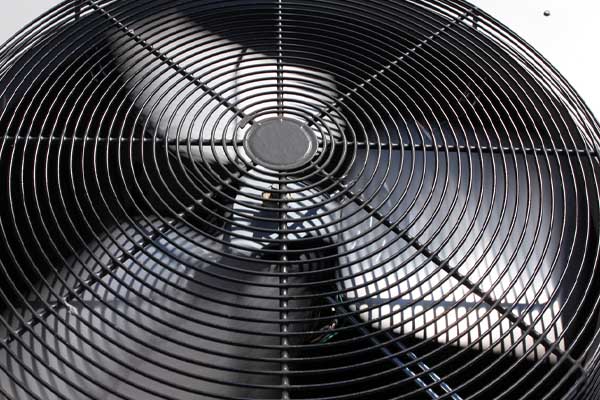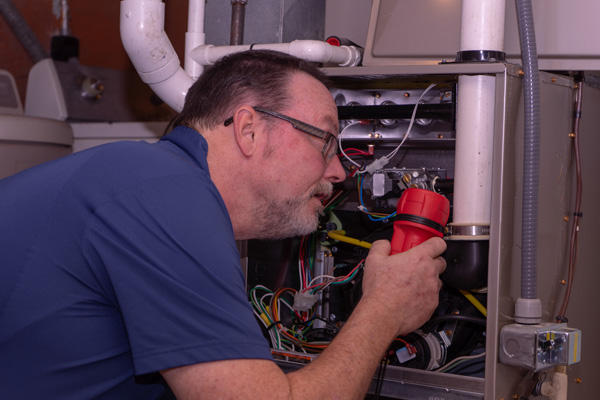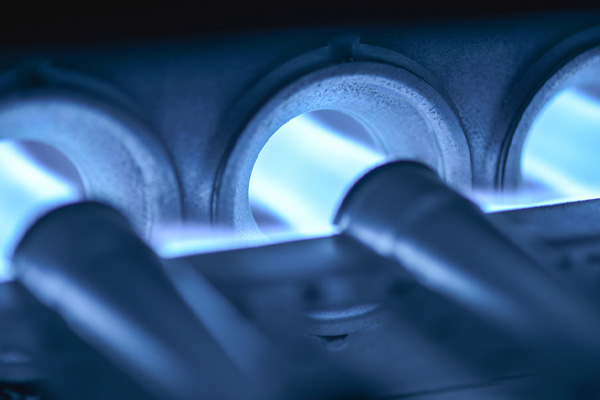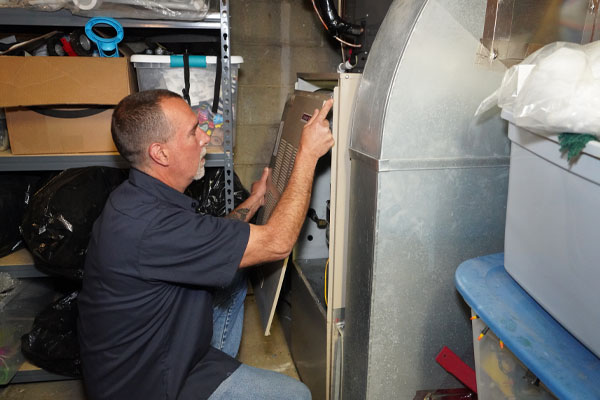Rust is a relentless adversary, just as relevant to your home’s heating system as in any other scenario. Rust is particularly persistent in humid environments. However, it’s essential to recognize that even normal furnace operation can lead to temperature variations. Such variations often contribute to moisture production. Rust in furnace can significantly impact the efficiency and durability of even the sturdiest and most dependable heating systems over time.
While it’s theoretically possible to prolong your system’s lifespan by not using it, this approach isn’t feasible for residents in colder regions. Avoidance only delays the inevitable; the day will come when your system requires attention. It’s important to acknowledge that rust in furnaces is more widespread than many might think. In this article, we delve into the typical reasons behind this issue.
Origins of Rust in Your Furnace
Experts identify three primary factors that contribute to rust formation in heating systems.
1. Moisture Intrusion and Elevated Humidity Levels
Humidity, defined as the amount of water vapor in the air, varies by location due to environmental differences. Certain areas naturally experience higher humidity levels. Within your home, which creates its unique microclimate, adding moisture to the air can exacerbate these conditions. Water leaks within the home are often a critical factor in such scenarios.
2. Air Conditioning Malfunctions

The second key source of rust is a particular type of water leakage, often directly linked to your heating system. This involves leaks from an air conditioning unit. As a natural by-product of their function, all air conditioners produce water. In many contemporary homes, air conditioners are central systems, meaning they’re integrated directly into the furnace’s ductwork. Consequently, leaks from the air conditioning can seep directly into the heating system. This increases the overall humidity in the home and also leads to standing water forming in areas where it can cause significant issues.
3. Furnace Exhaust Problems
The third prevalent cause of rust relates to the inherent processes of your home’s heating and cooling systems. Generating heat in the furnace can inadvertently increase humidity levels in the surrounding area. As the intensely heated air from the furnace cools down upon exiting the burner, it can lead to condensation within the system itself.
Understanding the Implications of Rust in Furnaces

The reality of rust in furnaces is inescapable; given enough time, every furnace will succumb to corrosion. While it’s true that rust is a slow but sure adversary, there are proactive steps you can take to ensure that significant rust damage is a distant concern rather than an imminent issue. Vigilance in monitoring and maintaining your furnace is crucial in this endeavor.
Preventative Measures Against Furnace Rust
The following section explores various strategies to prevent rust accumulation in your furnace, ensuring its longevity and efficiency.
Prioritizing Regular Furnace Maintenance

Scheduling an annual maintenance check-up for your furnace is pivotal in preventing rust. This service, which is both affordable and cost-effective than the expense of replacing an entire heating system, is essential for long-term furnace care. During these inspections, HVAC professionals will thoroughly examine your furnace for any signs of rust.
Furnace Fuel Supply Lines
Rust’s impact on furnace fuel supply lines is another critical concern. Corroded lines can fail, posing a severe risk of fire or explosion within your home. Local news stories sometimes shockingly illustrate the aftermath of such incidents, where homes or businesses are reduced to mere smoldering ruins.
The real threat posed by rust extends far beyond cosmetic issues like unsightly orange streaks on the exterior of the unit. When rust becomes a prominent feature in your heating system, it can evolve into a genuine hazard, compromising your family’s safety. Often, the unit’s internal components may have already suffered extensive damage by the time visible rust marks are noticed on the exterior.
Clogged Burner Jets

Over time, rust can significantly hinder your furnace’s performance. One of the primary issues caused by rust is the clogging of burner jets. When these jets are obstructed, the system’s efficiency drops, demanding more fuel to produce the same heat level. More concerning is the risk of having dangerously high levels of carbon monoxide.
Prompt Resolution of Furnace Problems
In addition to diligently adhering to annual inspections, it’s crucial to address any identified furnace issues without delay. Yearly inspections are designed to uncover any underlying causes contributing to rust accumulation in your system. It’s essential to either eliminate or mitigate these conditions promptly. Following this, any system components that have deteriorated due to rust or other issues should be repaired.
Not every heating system can be restored effectively. In some cases, even though a system can be repaired, the cost required to restore it to optimal performance might not justify the investment. Especially with older systems, achieving maximum efficiency after repairs often falls short compared to the efficiency of newer models operating at sub-optimal levels.
Homeowners typically lack the expertise to assess these factors accurately, underscoring the importance of consulting with a professional who can provide knowledgeable guidance in such decisions.
Leveraging the Expertise of HVAC Professionals

HVAC contractors are well aware that each homeowner’s situation is unique. They possess the expertise to clearly explain the cost-benefit analysis of various options, allowing homeowners to make informed decisions that fit their specific needs and preferences. It’s crucial to remember that proactively managing rust in your system significantly broadens your range of choices. However, once rust establishes a significant presence, your options may become limited, often leading to the necessity of a complete system replacement for safety reasons.
Contact Modern Comfort for Comprehensive HVAC Services
Modern Comfort provides exceptional heating and cooling services in Central Maryland and Southern and Central Pennsylvania. Our team of professionally certified technicians is adept at offering efficient HVAC tune-ups, repairs, installations, and replacements. They possess the expertise necessary to service your HVAC system effectively.
We provide competitive pricing on all our heating and cooling services. Our maintenance services aim to improve your comfort and energy efficiency, minimizing your heating and cooling expenses. If you need HVAC repair or a replacement system, we’ll recommend the best options within your budget. All our services come with a satisfaction guarantee. For a free in-home estimate and to schedule a service appointment, contact Modern Comfort today.
You can click here to contact us now or call us at (410) 429-7252 (MD residents) and (717) 489-3939 (PA residents) to find out more! Click the link to view our service area.

Related Articles:

Recent Articles
